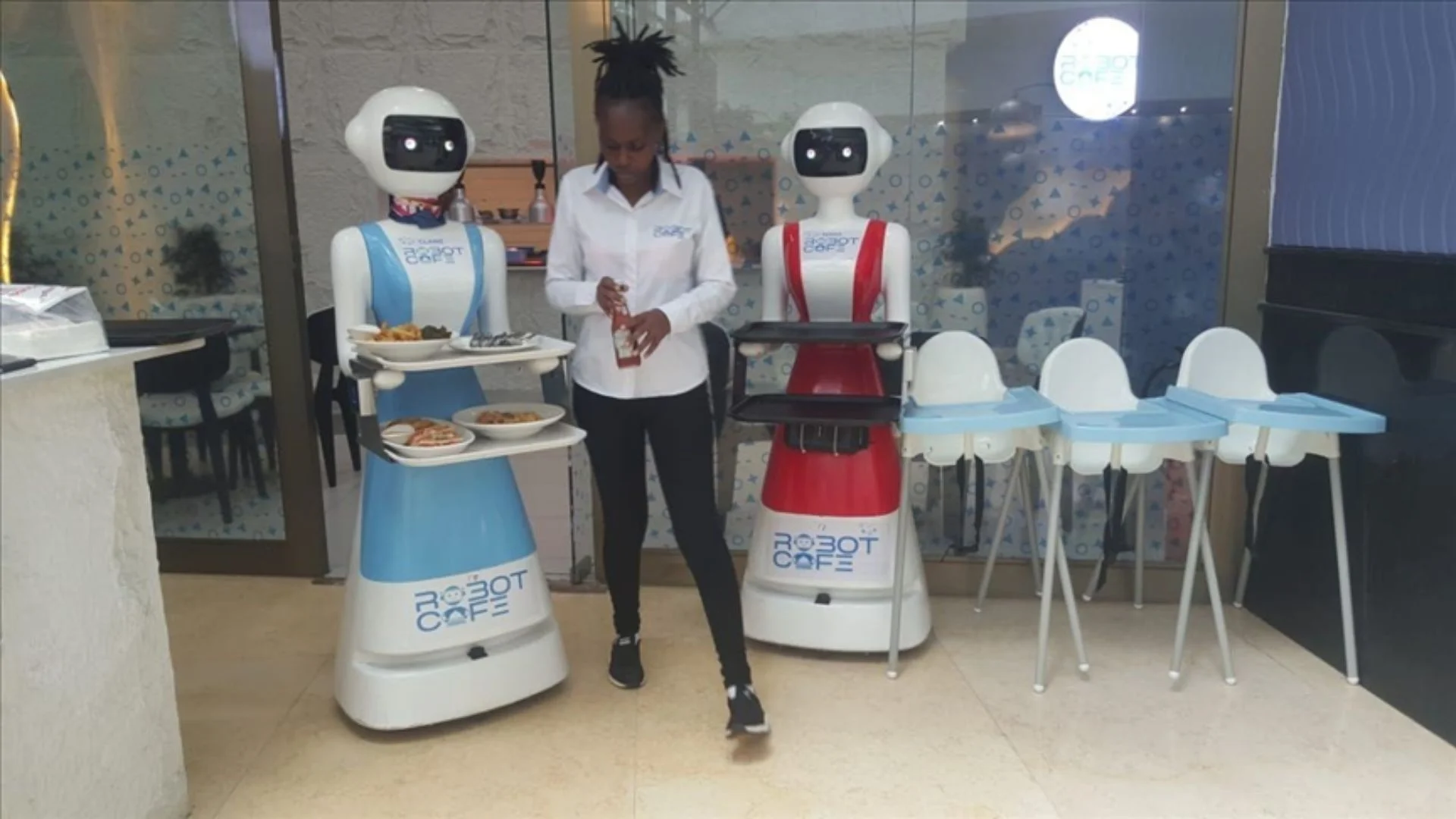A Novel Dining Experience
In Nairobi, Kenya’s capital and a thriving tech hub known as the “Silicone Savanna,” a new dining experience is captivating customers. At the Robot Cafe, children giggle and diners eagerly film as robots glide through the restaurant, delivering freshly prepared meals on their inbuilt trays. The cafe, believed to be the first of its kind in Nairobi and East Africa, features three robots that serve food alongside human waiters, creating a unique blend of technology and tradition.
Inspiration and Investment
The robots, named Claire, R24, and Nadia, were introduced by cafe owner Mohammed Abbas, who was inspired by similar services he encountered in Asia and Europe. Although importing the robots was a costly venture, Abbas believes the investment has paid off. “It was very expensive to import the robots,” he says, but notes that the restaurant is frequently busy with curious customers eager to experience robot service firsthand.
Customer Reactions
The novelty of robot service has drawn widespread interest. One customer, Packson Chege, described the experience as “unique,” noting that it was unlike anything he had seen in Kenya before. While the robots cannot engage in full conversations, they are preprogrammed to say, “Your order is ready, Welcome,” before customers press an exit button to collect their food.
The Role of Human Waiters
Despite the technological innovation, human waiters remain essential to the cafe’s operations. They take orders from customers who prefer not to use the online ordering system and manually place food on the robots’ trays. Drinks are still delivered in person, highlighting the continued importance of human interaction in the dining experience.
Balancing Technology and Tradition
The introduction of robots in the hospitality industry has sparked discussions about the future of the workforce, particularly in Africa, where the population is predominantly young, with a median age of 19 years. However, the cafe’s manager, John Kariuki, emphasizes that the robots are not a replacement for human staff. “At no point are the robots able to fully function in all the services that are supposed to be ongoing in the restaurant without the human touch,” he explains.
Industry Perspectives
Hospitality industry expert Edith Ojwang sees room for both robotic and human service to coexist. “The hospitality industry is very diverse,” she says. “We have clients who will prefer robotic service and full automation, while others will prefer the human touch and warmth that comes with human service. It is not entirely a threat to human labor because of the diverse nature of the hospitality client base.”
As Nairobi’s Robot Cafe continues to attract attention, it stands as a symbol of the city’s vibrant tech scene and the evolving relationship between technology and traditional service industries.







